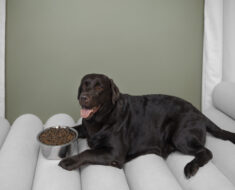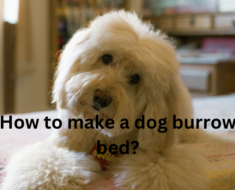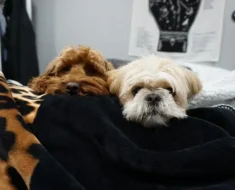Do you ever wake up to find your furry friend has left an unpleasant surprise on your bed? It’s a frustrating and disgusting problem that many dog owners face.
But don’t worry, there are effective ways to stop your dog from pooping on your bed.
In short, the key to solving this problem is to train your dog to associate your bed with sleep, not as a place to relieve themselves. This can be done through various techniques such as crate training, positive reinforcement, and providing alternative designated potty areas.
In this article, we’ll explore these techniques in more detail and provide expert advice from renowned dog trainers and veterinarians.

Say goodbye to messy mornings and hello to a clean bed and happy dog. Let’s dive into the world of effective dog training and put an end to this frustrating behavior.
How to stop my dog from pooping on my bed?
Visit the vet
If your dog is pooping on your bed, it could be a sign of a medical issue or a behavioral problem. The first step to stopping this behavior is to visit the vet.
There are several medical conditions that can cause a dog to have accidents in the house, such as urinary tract infections, gastrointestinal issues, or parasites. Your vet can perform a physical exam and run tests to rule out any underlying medical conditions.
If your dog is healthy, the vet can also provide guidance on behavior modification techniques to help stop the inappropriate behavior. They may suggest techniques such as crate training, positive reinforcement, or changes to your dog’s diet or exercise routine.
In some cases, the vet may refer you to a professional dog trainer or behaviorist for further assistance.
It’s important to address this behavior as soon as possible to prevent it from becoming a persistent problem and to maintain a healthy and hygienic living environment.
House train her
The second step to stopping your dog from pooping on your bed is to house train her. House training is the process of teaching your dog where and when it’s appropriate to eliminate waste.
Here are some steps you can follow to house train your dog:
- Establish a consistent routine: Take your dog outside to eliminate waste at the same times every day, such as after meals, after waking up, and before bedtime.
- Choose a designated elimination area: Take your dog to the same spot every time you take her outside to eliminate waste. This will help her associate that area with going potty.
- Use positive reinforcement: Reward your dog with praise and treats immediately after she eliminates waste in the designated area. This will reinforce the behavior you want her to repeat.
- Supervise your dog: Keep a close eye on your dog when she’s inside to prevent accidents. If you can’t supervise her, confine her to a crate or a designated area.
- Clean up accidents properly: Use an enzymatic cleaner to remove the odor of urine or feces from your bed and any other areas where your dog has had accidents. This will help prevent her from returning to those areas to eliminate waste again.
It’s important to be patient and consistent when house training your dog. With time and effort, your dog will learn where and when it’s appropriate to eliminate waste, and you’ll be able to prevent her from pooping on your bed.
Thus, here you can check out some dog bed stairs.
Take him outside
The third step to stopping your dog from pooping on your bed is to take him outside regularly and consistently.
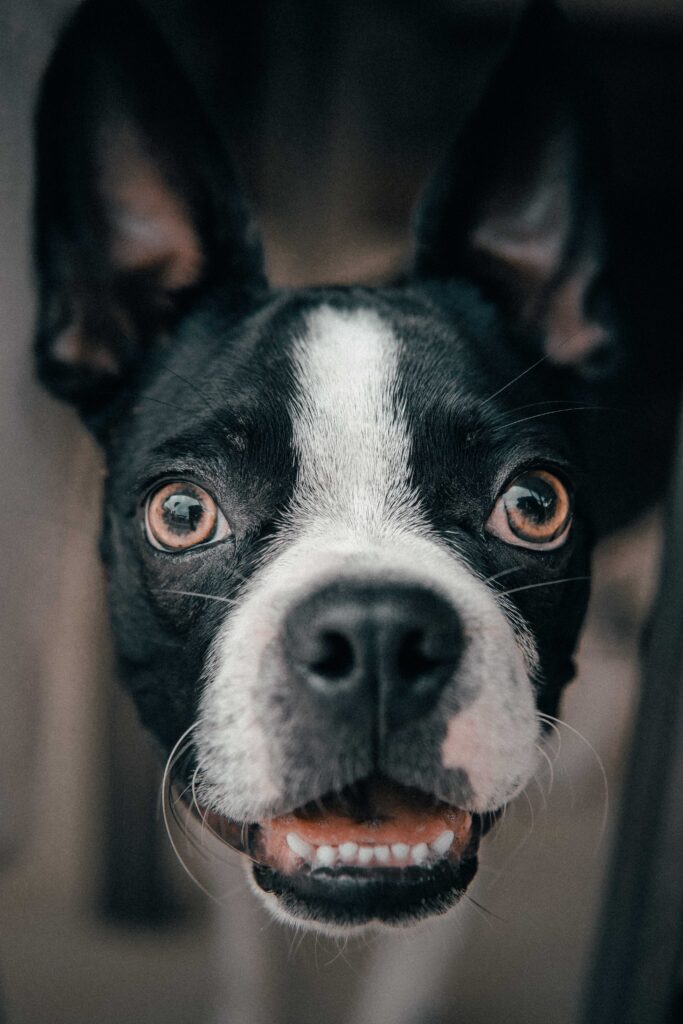
Dogs need to eliminate waste several times a day, and taking them outside is the best way to ensure they do it in the appropriate place.
Here are some tips for taking your dog outside:
- Establish a routine: Take your dog outside to eliminate waste at the same times every day, such as after meals, after waking up, and before bedtime.
- Use a leash: Keep your dog on a leash when you take him outside to eliminate waste. This will help you control him and prevent him from wandering off.
- Go to a designated area: Take your dog to the same spot every time you take him outside to eliminate waste. This will help him associate that area with going potty.
- Use a command: Use a consistent command, such as “go potty” or “do your business,” when you take your dog outside to eliminate waste. This will help him understand what you want him to do.
- Reward good behavior: Reward your dog with praise and treats immediately after he eliminates waste in the designated area. This will reinforce the behavior you want him to repeat.
- Be patient: Some dogs take longer than others to learn to eliminate waste outside. Be patient and consistent with your training, and don’t punish your dog for accidents.
By taking your dog outside regularly and consistently, you can help him learn where and when it’s appropriate to eliminate waste and prevent him from pooping on your bed.
Keep her calm
The fourth step to stopping your dog from pooping on your bed is to keep her calm. Dogs can become anxious or stressed for various reasons, and this can lead to inappropriate elimination behaviors such as pooping on the bed.
Here are some tips for keeping your dog calm:
- Exercise: Make sure your dog gets plenty of exercise to burn off excess energy and reduce anxiety. Take her for walks or play games with her to keep her active.
- Mental stimulation: Provide your dog with mental stimulation, such as puzzle toys or training sessions, to keep her mind engaged and reduce boredom.
- Calming aids: Consider using calming aids such as pheromone sprays or calming supplements to help reduce your dog’s anxiety.
- Positive reinforcement: Use positive reinforcement to reward your dog for calm behavior, such as lying down quietly or relaxing on a mat.
- Consistency: Stick to a consistent routine for feeding, exercise, and training to help your dog feel more secure and reduce anxiety.
- Avoid punishment: Punishing your dog for pooping on the bed will only increase her anxiety and make the problem worse. Instead, focus on positive reinforcement and keeping her calm.
By keeping your dog calm, you can help reduce anxiety-related behaviors such as pooping on the bed.
If your dog continues to have accidents despite your efforts, consult with a professional dog trainer or behaviorist for further guidance.
Spay or neuter
The fifth step to stopping your dog from pooping on your bed is to consider spaying or neutering them. Spaying and neutering can have several benefits, including reducing unwanted behaviors such as marking and roaming.
Here are some benefits of spaying or neutering your dog:
- Reduces marking behavior: Spaying or neutering can reduce the urge to mark territory, including on your bed.
- Reduces roaming behavior: Unneutered male dogs may roam to find a mate, which can lead to accidents in the house. Neutering can reduce this behavior and keep your dog closer to home.
- Reduces aggression: Unneutered male dogs may be more aggressive towards other dogs or people. Neutering can reduce this behavior and make your dog more sociable.
- Reduces risk of certain health issues: Spaying or neutering can reduce the risk of certain health issues such as reproductive system cancers.
If your dog continues to have accidents despite your efforts to train and keep them calm, spaying or neutering may be a viable option. Consult with your veterinarian to determine the best course of action for your dog.
It’s important to note that spaying or neutering is not a guaranteed solution to stopping your dog from pooping on your bed. Additional training and behavior modification may still be necessary to fully address the issue.
Start dog poop deterrent training
The 5th step to stopping your dog from pooping on your bed, which is to start dog poop deterrent training.
Dog poop deterrent training involves using unpleasant scents or tastes to discourage your dog from eliminating waste in inappropriate areas, such as your bed.
Here are some tips for dog poop deterrent training:
- Choose a deterrent: There are several commercial products available, such as sprays or granules, that can be used as dog poop deterrents. You can also use natural scents such as citrus, vinegar, or cayenne pepper.
- Apply the deterrent: Apply the deterrent to the areas where your dog has been eliminating waste, such as your bed or other furniture. Follow the product instructions carefully and avoid using too much, as some deterrents can be harmful to your dog.
- Supervise your dog: Keep a close eye on your dog and intervene if you see them attempting to eliminate waste in inappropriate areas. Redirect them to the designated elimination area outside.
- Reward good behavior: Reward your dog with praise and treats immediately after they eliminate waste in the appropriate area outside.
- Be patient: It may take some time for your dog to learn to associate the unpleasant scent or taste with inappropriate elimination. Be patient and consistent with the training.
- Clean up accidents: Clean up accidents immediately with an enzymatic cleaner to remove the scent and discourage your dog from returning to the area.
By using a dog poop deterrent and consistent training, you can help discourage your dog from eliminating waste in inappropriate areas such as your bed.
How to stop my dog from pooping on my bed? (7 instant steps)
It can be frustrating and unpleasant to find that your dog has been pooping on your bed. Here are some tips that may help you stop this behavior:
Before going into deep here if you want to know can you put a foam dog bed in the dryer.
1. Take your dog to the vet:
The first step is to rule out any medical issues that may be causing your dog to poop on your bed.
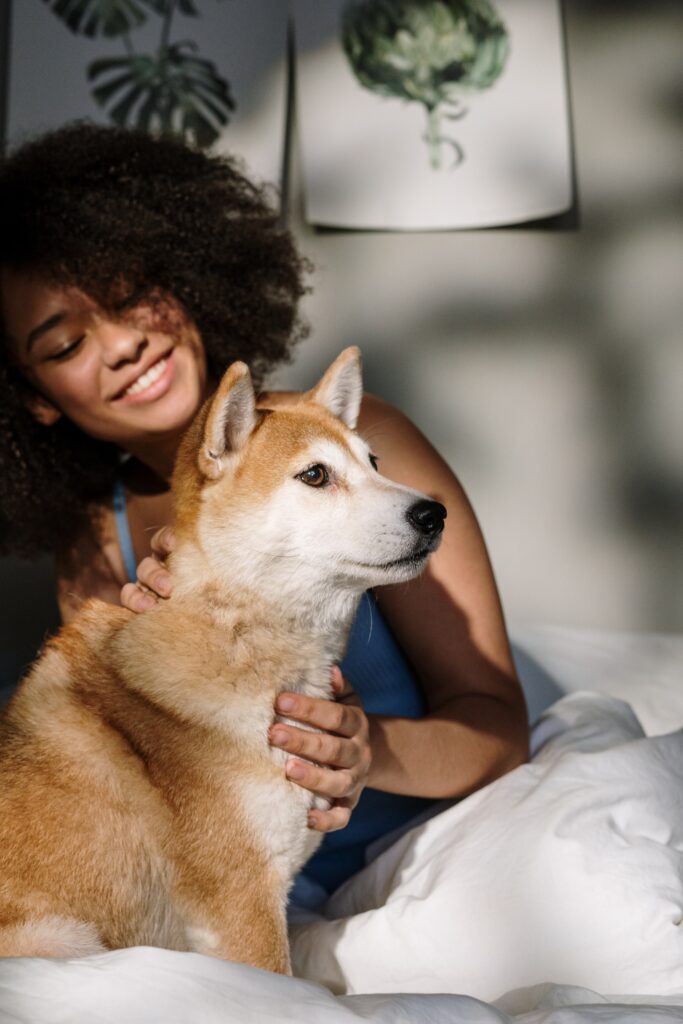
A medical condition could be causing your dog to have accidents, so it’s important to get them checked out.
2. Establish a routine:
Dogs thrive on routine, so it’s essential to establish a regular routine for feeding, exercise, and bathroom breaks. Make sure your dog gets plenty of exercise and goes outside to do their business frequently.
3. Crate train your dog:
Crate training can be an effective way to prevent your dog from pooping on your bed. Dogs don’t like to soil their sleeping areas, so if your dog is properly crate trained, they will learn to hold their bladder and bowels until you take them outside.
4. Monitor your dog:
If your dog has a history of pooping on your bed, keep a close eye on them. If you catch them in the act, interrupt them with a loud noise, pick them up, and take them outside immediately.
5. Keep your bedroom door closed:
If your dog has access to your bedroom, consider keeping the door closed to prevent them from getting on your bed.
6. Use positive reinforcement:
When your dog goes outside to do their business, praise and reward them with treats or affection. Positive reinforcement can help reinforce good behavior and make it more likely that your dog will continue to go outside to do their business.
7. Consider hiring a professional trainer:
If the problem persists, consider hiring a professional trainer to help you work with your dog and address any underlying behavioral issues.
Now let’s move to some related faq’s.
Related faq’s
Why would my dog poop on my bed?
There could be several reasons why your dog is pooping on your bed, including:
- Medical issues: If your dog is experiencing health problems such as gastrointestinal issues or urinary tract infections, they may not be able to control their bowel movements. It is recommended to take them to the vet for a checkup.
- Anxiety: Dogs can experience anxiety, and one way they may express this is by soiling in areas where they feel safe and comfortable, such as your bed.
- Lack of potty training: If your dog is not properly trained to go potty outside or in a designated area, they may not understand that your bed is not an appropriate place to go.
- Territorial marking: Some dogs may poop on your bed to mark their territory or claim ownership over it.
It is important to observe your dog’s behavior and seek advice from a veterinarian or animal behaviorist to determine the underlying cause of this behavior and find an appropriate solution.
How do I get my dog to stop peeing and pooping in my bed?
To get your dog to stop peeing and pooping in your bed, you can take the following steps:
- Take your dog to the vet: Rule out any medical conditions that may be causing your dog to soil on your bed. If they have a medical condition, work with your veterinarian to develop a treatment plan.
- Potty train your dog: If your dog is not potty trained, work on training them to go outside or in a designated area. Use positive reinforcement, such as treats and praise, to encourage them to go where you want them to go.
- Keep your dog off the bed: Limit your dog’s access to your bed by closing the door or using a baby gate. Provide a comfortable and cozy alternative sleeping area for your dog.
- Use a deterrent: Consider using a deterrent spray or product that will discourage your dog from soiling on your bed. These products can be found at pet stores or online.
- Clean up accidents thoroughly: Use an enzyme-based cleaner to remove all traces of urine or feces from your bed. Dogs have a strong sense of smell and may continue to soil in the same spot if they can still smell their own waste.
- Seek professional help: If the above steps do not work, consult with a veterinarian or animal behaviorist for additional guidance on how to stop your dog from soiling on your bed.
Remember that patience and consistency are key when it comes to training your dog. With time and effort, you can help your dog develop better habits and avoid accidents in your bed.
Why does my dog poop on my bed when I’m not home?
If your dog poops on your bed when you’re not home, it could be due to separation anxiety.
Separation anxiety is a common behavioral issue that occurs when a dog becomes distressed or anxious when separated from their owner or primary caregiver.
The stress and anxiety can cause the dog to act out in various ways, including pooping or peeing in inappropriate places such as your bed.
When left alone, dogs with separation anxiety may feel anxious and nervous, leading them to engage in destructive behaviors such as chewing, scratching, or soiling.
For some dogs, the anxiety may be triggered by specific cues, such as the sound of your car leaving the driveway or the sight of you putting on your shoes.
They may start to associate these cues with you leaving, leading to increased anxiety and undesirable behaviors.
To address this issue, it is recommended to start with gradual desensitization techniques. This involves slowly increasing the amount of time your dog spends alone in a safe and comfortable space, such as a crate or a designated room.
Provide plenty of toys and treats to keep your dog occupied and entertained while you are away.
Additionally, you can consider seeking the help of a professional dog trainer or animal behaviorist.
They can assess your dog’s behavior and develop a personalized training plan to address separation anxiety and any associated behavioral issues.
Overall, addressing separation anxiety requires patience and consistency.
By taking the time to understand your dog’s behavior and needs, and providing appropriate training and support, you can help your dog feel more comfortable and confident when left alone, and avoid accidents on your bed.
Conclusion:
In conclusion, dealing with a dog that poops on your bed can be frustrating and unpleasant. However, with a little patience, consistency, and some of the tips mentioned in this blog, you can effectively stop your dog from doing so.
Remember to create a designated area for your dog to relieve themselves, offer plenty of exercise and mental stimulation, and supervise your dog when they are in your bedroom.
Additionally, don’t forget to reward your dog for good behavior and seek professional help if the problem persists. With these strategies, you can maintain a clean and comfortable sleeping space for you and your furry friend.
Have you experienced similar issues with your pet? Share your thoughts and experiences in the comments section below!

